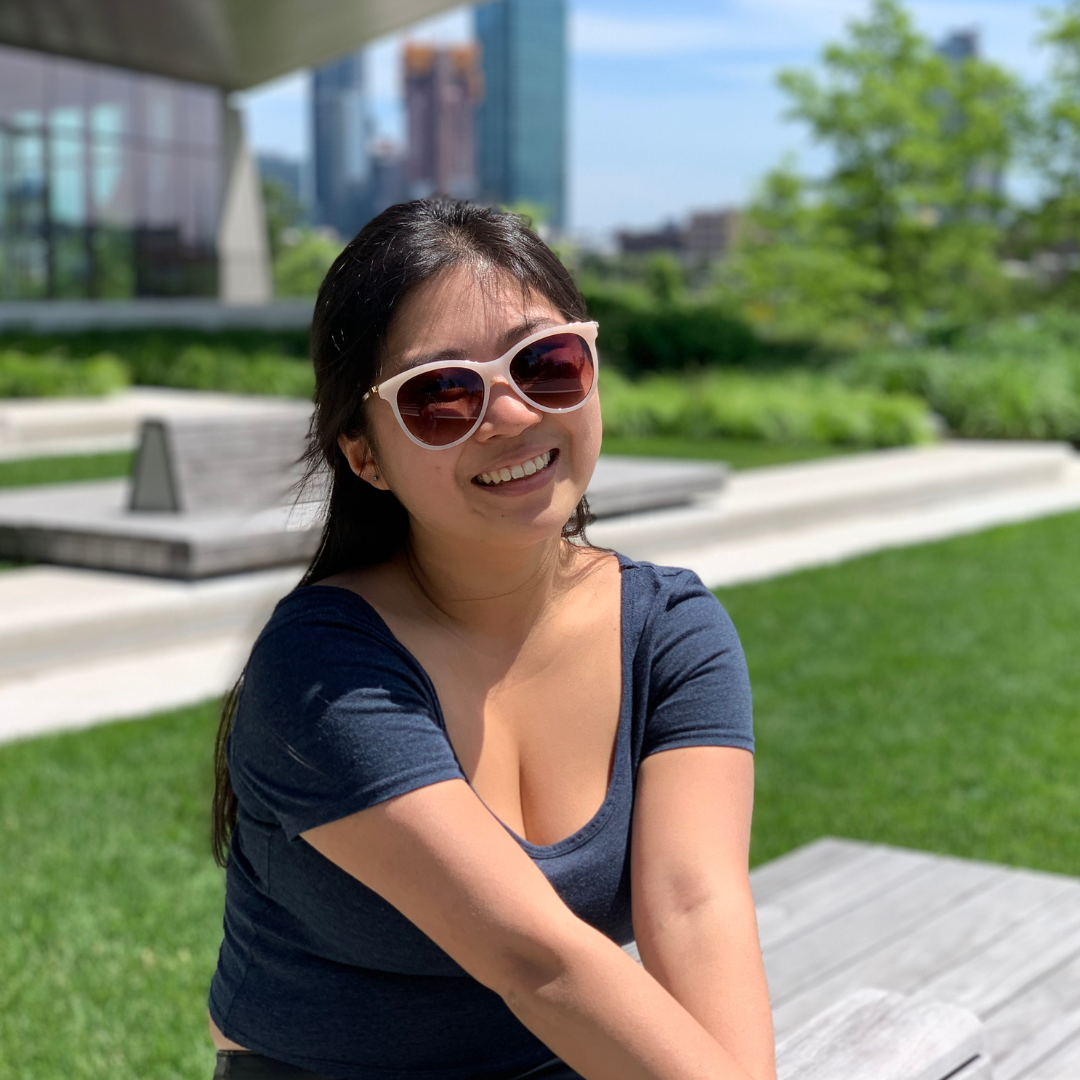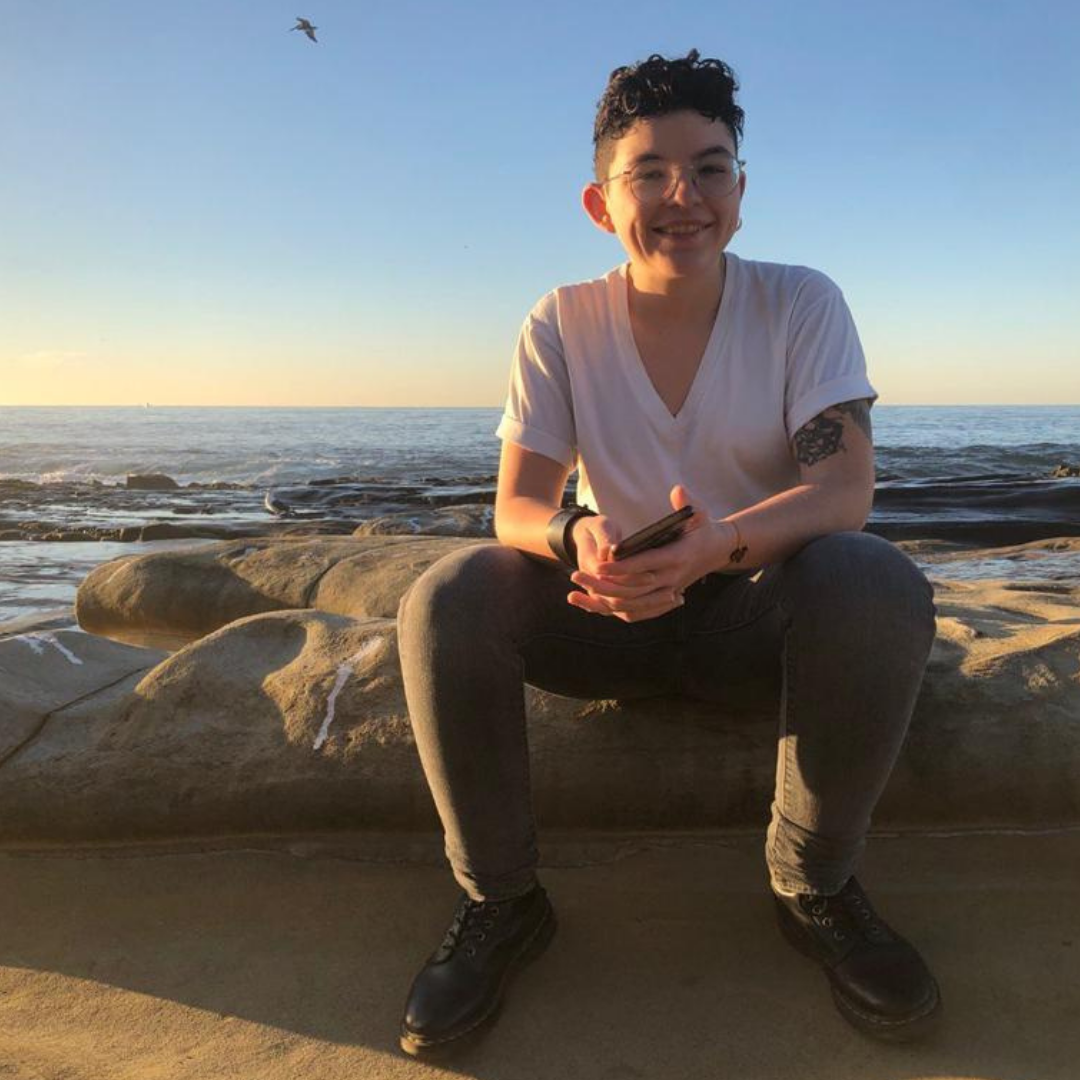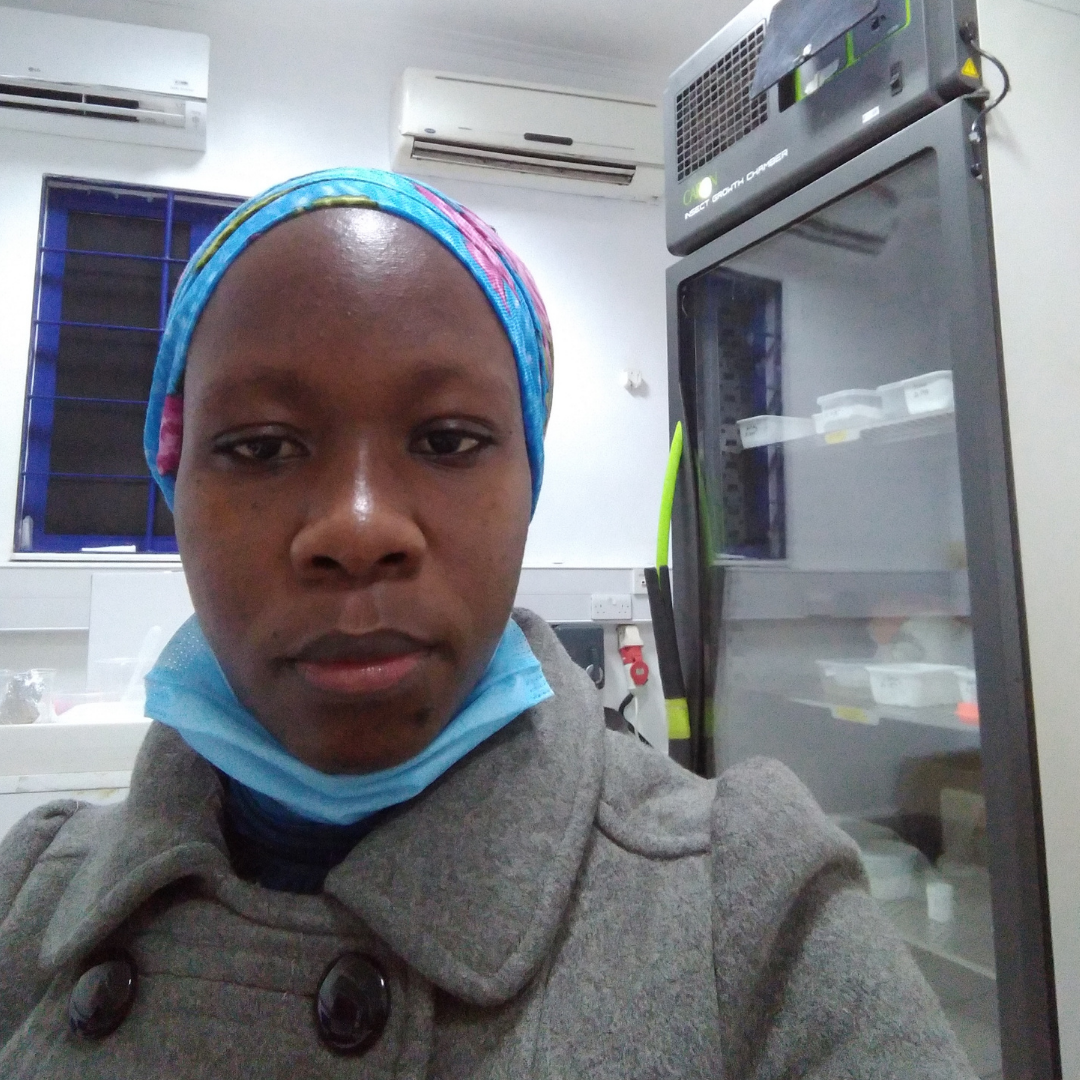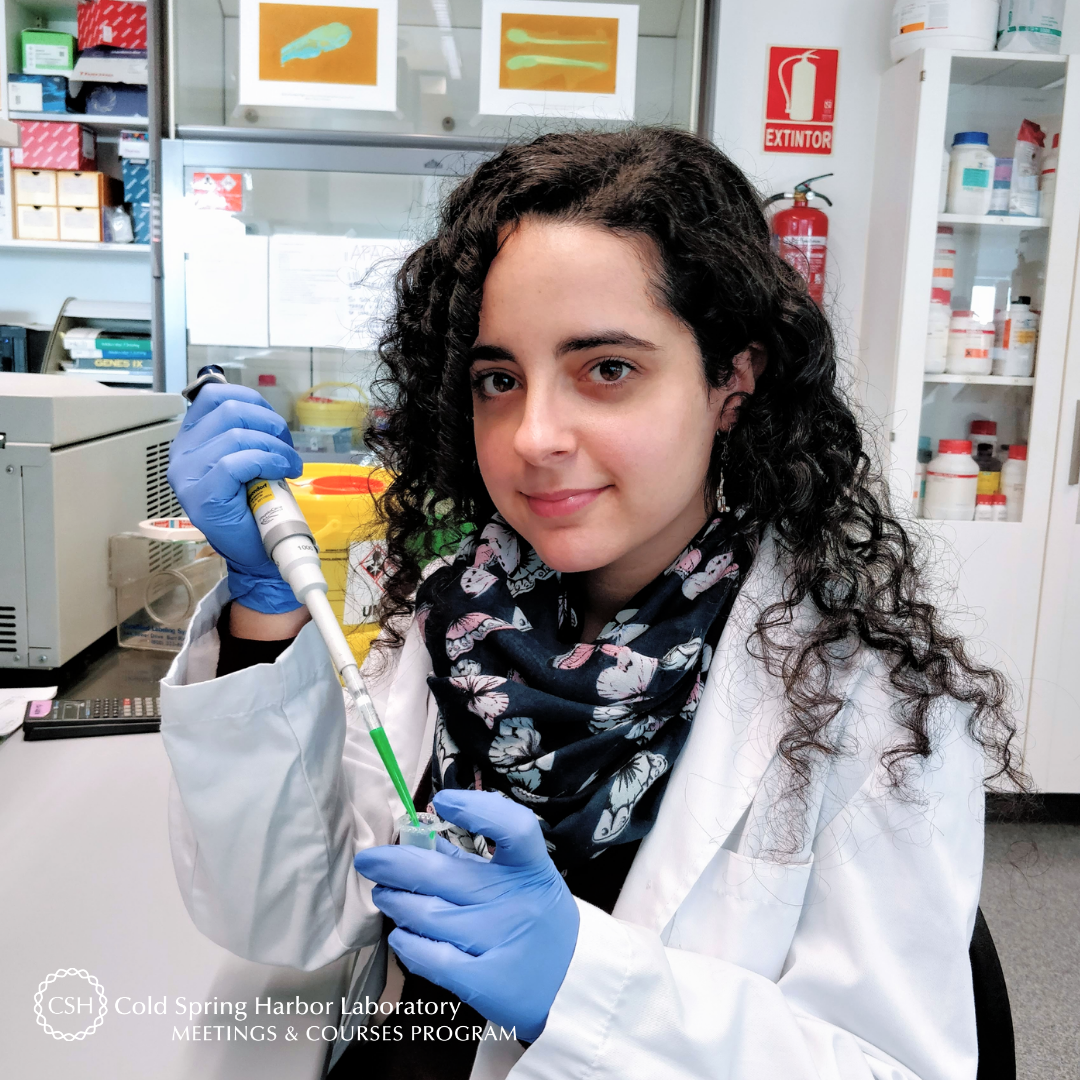Meet Vasiliki Liaki, a graduate student at the Spanish National Cancer Research Center (CNIO) in Spain! Vasiliki is a Greek national working in the Experimental Oncology Group led by Mariano Barbacid, and this week, she took part in her first meeting at CSHL – JAK-STAT Pathways in Health & Disease.
Tell us about your research.
In our group, we focus on identifying viable therapeutic strategies against KRAS mutant pancreatic and lung tumors. I am specifically interested in identifying and targeting the tumorigenic KRAS signaling of advanced pancreatic ductal adenocarcinoma (PDAC) using genetically engineered mouse tumor models and patient-derived organoids.
How did you decide to focus on this area/project?
My background had been in Molecular Genetics in Cancer and Aging. For my PhD studies, I wanted to focus in translational research in cancer; therefore, I chose this group, since the research work in Mariano’s lab is pioneering in the field of tumor mouse models and KRAS biology.
What and/or who is the inspiration behind your scientific journey?
I have been interested in the STEM fields since a young age, but biology was my favourite. During my BSc and MSc studies, I visited different labs involved in cancer genetics, and I had mentors whose research work and laboratory skills were inspiring. I am currently drawn to the Molecular Oncology field, so I would say investigating the oncogenic signalling of PDAC is fascinating and is basically what keeps me motivated.
What impact do you hope to make through your work?
The pancreatic cancer research field is in urgent need of new findings, not only on molecular diagnostics but therapeutic strategies as well. In our group, including Dr. Carmen Guerra, we are hoping our studies contribute to the fight against pancreatic cancer and, ultimately, improve the clinical outcome of this highly aggressive and lethal disease.
What do you love most about being a researcher?
As a researcher, you never have a dull day. We explore so many different areas. Working collaboratively with our colleagues, bench work, animal experiments, results analysis, writing, presentations, teaching, scientific communication. It is admittedly not easy and we constantly face challenging problems but it is never boring!
What drew you to attend this meeting?
My supervisor informed me about this meeting and I thought it would be a great opportunity to stay updated with recent developments in the field of JAK-STAT pathways and Interferon responses and the application in different areas, including COVID-19. The CSHL meetings have cutting edge research with scientists presenting both interesting topics as well as new and exciting techniques. It is also encouraging to talk with leaders in the field, so it was something I didn’t want to miss.
What is your key takeaway from the Meeting; and how do you plan to apply it to your work?
The meeting offered new insight regarding the STATs and their function in the regulation of DNA methylation as well as the crosstalk of their signaling pathways with others in various diseases. I plan to use the new information to reevaluate some of my own data and design new experiments.
What feedback or advice would you share with someone considering to participate in this meeting?
It was my first CSHL meeting and even though it was virtual, it was quite interesting and fun. The Slack app helped a lot to interact with the rest of the attendants and the speakers. I really enjoyed the Meet the Speakers session. I would strongly recommend attending this meeting and encourage the participants to get familiar with the available tools and engage as much as possible.
What’s the most memorable thing that happened during the Meeting?
The meeting is not over yet, but I would definitely single out the cancer-related talks of Michael Farrar, Veronica Sexl and Daniel Gough. I found it particularly funny, when during the Q&A after his presentation Michael Farrar indignantly answered “I know right?? We looked at it SO MANY TIMES but we never found it increased!”
Thank you to Vasiliki for being this week's featured visitor. To meet other featured researchers - and discover the wide range of science that takes part in a CSHL meeting or course - go here.
Images provided by Vasiliki Liaki































